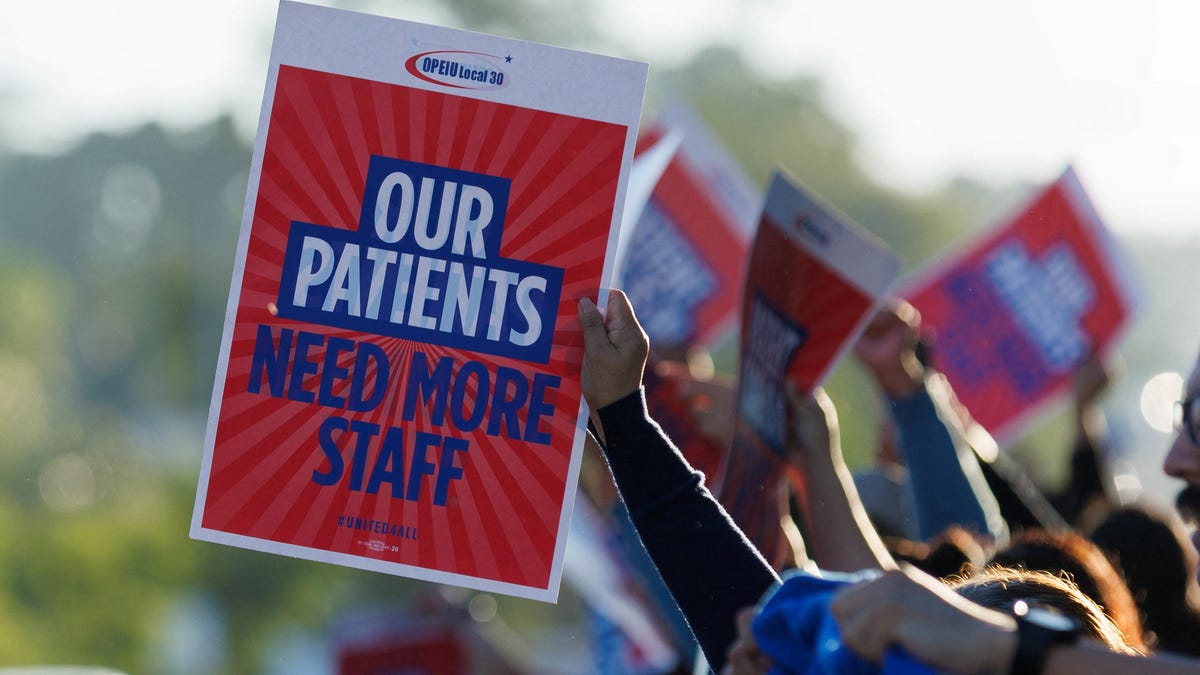In a historic move, approximately 75,000 unionized workers at Kaiser Permanente went on strike on Wednesday, making it the largest healthcare worker strike in US history. The striking workers include licensed vocational nurses, home health aides, ultrasound sonographers, and technicians in radiology, x-ray, surgical, pharmacy, and emergency services. You can read more about it here.
These workers, who are represented by the Coalition of Kaiser Permanente Unions, are spread across California, Colorado, Oregon, Virginia, Washington state, and Washington DC. The strike is scheduled to last for three days, from October 4th to October 7th.
Mary Kay Henry, the head of the Service Employees International Union (SEIU), which represents 2 million members, expressed solidarity with the striking workers in a statement. She emphasized the dedication of healthcare workers, who risk their lives every day to care for their communities, particularly during the ongoing pandemic.
Staffing Shortage Challenges the Healthcare Industry
Kaiser Permanente, a nonprofit organization headquartered in Oakland, California, is one of the largest managed healthcare providers in the country, serving 13 million patients. The union coalition cites severe worker shortages and low staff retention as the primary reasons for the strike, with the pandemic taking a toll on the emotional well-being of the workers.
The union’s demands include raising wages to align with living standards, establishing a minimum wage of $25 per hour, improving the broken hiring systems that leave vacancies open for an average of 80 days, and investing in more education and training opportunities. You can read more about their demands here.
Despite the strike, Kaiser Permanente has stated that its hospitals, emergency departments, and pharmacies will remain open to ensure that patient care is not disrupted. The company and the coalition of unions are currently in negotiations, and progress has been made on some proposals, according to a statement issued by the company.
Anticipating High Call Volumes
In Southern California, Kaiser Permanente has informed patients that they may experience longer wait times due to high call volumes resulting from the strike. You can find more information about it here.
However, Kaiser Permanente assures patients that their hospitals, emergency departments, and pharmacies will continue to provide services throughout the strike. Once the three-day strike concludes, the workers are expected to return to their jobs. However, if an agreement is not reached, a potentially more extensive strike may occur in November, as mentioned by SEIU-UHW, the largest union in the coalition.
Related Stories
🏥 You can find more stories about the global healthcare industry and the treatment of nurses in our investigative series, Merchants of Care:
Explore the full series here.
Denial of responsibility! Vigour Times is an automatic aggregator of Global media. In each content, the hyperlink to the primary source is specified. All trademarks belong to their rightful owners, and all materials to their authors. For any complaint, please reach us at – [email protected]. We will take necessary action within 24 hours.


